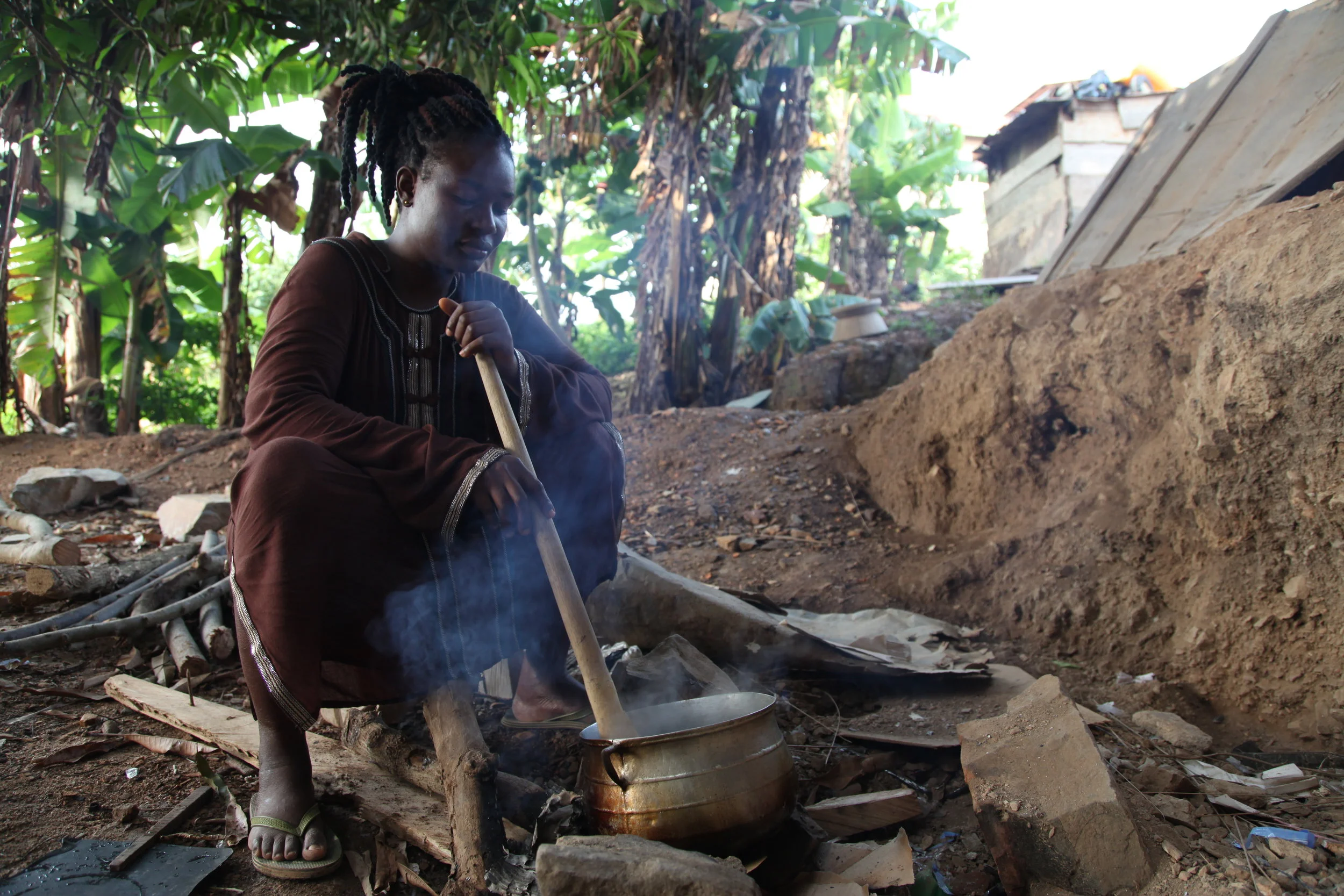Public health expert Dr Elisa Puzzolo says old habits must change in order for households to make a complete switch to LPG
Dr. Elisa Puzzolo, a public health researcher and Honorary Research Fellow at the University of Liverpool, has spent the last seven years studying adoption and health impacts of household cooking interventions to reduce exposure to household air pollution. She believes that convincing people to change lifelong habits of burning dirty fuels is crucial.
March 28, 2017
The drawbacks of burning dirty fuels are clear. The smoke which billows from burning wood, charcoal, dried dung and coal stings the eyes, hurts throats and shortens lives. Household air pollution from smoke kills four million people prematurely every year and impairs the quality of life of many millions more.
The crux of the problem lies in part in changing human habits as well as the need for stronger political will to offer adequate clean cooking solutions on a large scale, said Dr. Elisa Puzzolo, a public health researcher and Honorary Research Fellow at the University of Liverpool, UK. She has spent the last seven years studying adoption and health impacts of household cooking interventions to reduce exposure to household air pollution.
Using clean burning gas such as liquefied petroleum gas (LPG), which can be easily stored and transported in cylinders and tanks, has much to offer as a clean cooking approach in addressing this health challenge.
But some roadblocks still stand in the way of increasing uptake of LPG. Apart from cost issues and limited availability of the fuel in some rural areas, “we must not forget that we are talking about changing lifelong habits of burning dirty fuels on open fires and stoves used for cooking and heating. Such a change requires both a complete shift in mindset and some time,” said Dr. Puzzolo.
The "stove stacking" conundrum
To explain the complexity of the issue, Dr. Puzzolo pointed to the common phenomenon of "stove stacking”, which is the use of a mixture of fuels and devices for cooking and heating needs. Often the mix is between clean and dirty fuels. For example, studies have shown that some households may use LPG for some or most of their cooking tasks, but continue to use biomass fuels for warming their home, or for cooking animal feed. LPG users also may continue burning firewood for preparing slow-cooking dishes, such as beans or chickpeas.
To explore solutions to this issue, she explained that a team of researchers at the University of Liverpool is starting a study in Cameroon to evaluate the time saved when pressure cookers powered by LPG are used for cooking in the home. The use of pressure cookers could be a scalable intervention to incentivize more exclusive use of clean fuel, and improve equitable access.
Over the past two years, the Department of Public Health and Policy at the University of Liverpool has been partnering with the Global LPG Partnership (GLPGP), a public-private partnership that works with governments and other stakeholders on policy, planning and investment to support increased uptake of LPG for cooking.
The LPG Adoption in Cameroon Evaluation (LACE) studies undertaken by the university in partnership with GLPGP have been designed to understand reasons which encourage and discourage initial adoption and sustained use of clean fuel over traditional solid fuel in the country. “We hope that results from these studies will show how LPG can best contribute to solving the household air challenge, and how poor people can access LPG for their daily cooking needs,” said Dr Puzzolo.
In February this year, GLPGP launched a program in Cameroon to provide low income families microloans to buy LPG equipment, smoothing the upfront cost over a six month payback period. Dr. Puzzolo has worked together with researchers at the University of Liverpool to study the impact of this program, by measuring the impact of fuel switching on household pollution levels. Lessons learned from this study will be used to inform more equitable access in line with the Cameroon government’s targets of significantly enhancing access to clean burning LPG in households across the country.
Proving the benefits of LPG with scientific research
Dr. Puzzolo said two types of studies are particularly crucial to prove the long-term benefits of using LPG:
First, interventions where entire communities adopt LPG for cooking.
“It is not effective for health to get some households to adopt LPG while the rest of the community continues to use dirty fuels,” Dr. Puzzolo said. “Studies that get a few households in a community to adopt LPG might not produce conclusive results on the health benefits,” she added. “LPG users are still exposed to harmful emissions if their neighbors continue to use polluting fuels.”
Second, studies need to look at the short and long term health and other benefits of LPG usage.
This year, the largest multi-site randomized control trial (RCT) on LPG usage to date was launched by Emory University with funds from the US National Institutes of Health (NIH) and the Bill and Melinda Gates Foundation. The study will be carried out in India, Rwanda, Guatemala and Peru over the next five years. Dr. Puzzolo is both a research partner and a member of the study’s steering committee.
About 400 pregnant women in each country will be provided with LPG equipment and cylinder refilling for thirty months. They will be monitored for health effects over time.
“This study will look at several health outcomes in both women and their babies. We want to provide solid scientific evidence on the health effects of using LPG,” said Dr. Puzzolo.
Next Article - New study shows LPG household cooking market in Ghana could triple by 2030


